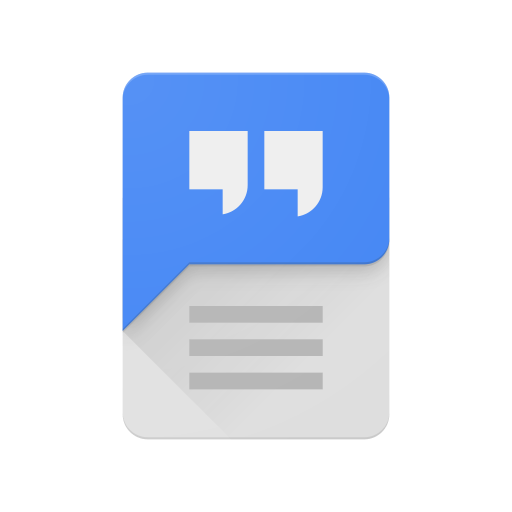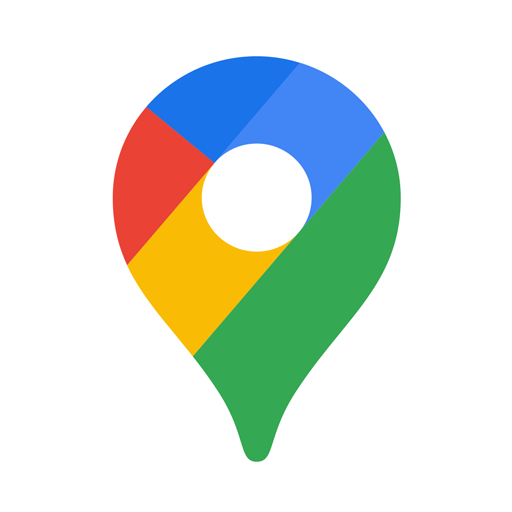Food Diary See How You Eat Log - Meal tracking made easy
Easily track meals & build healthy habits with simple photo logging, reminders, & insightful meal summaries!

- 3.2.62 Version
- 1.2 Score
- 235K+ Downloads
- In-app purchases License
- 3+ Content Rating
Are you searching for a user-friendly application to monitor your meals?
You’ve come to the right place.
Logging a meal takes just two taps. Give it a try!
The Food Diary See How You Eat app serves as a straightforward and intuitive photo food journal that assists you in tracking your food intake and maintaining consistent eating patterns, all while cultivating healthy dietary habits.
SIMPLE, ENJOYABLE, AND EFFECTIVE MEAL TRACKER:
1.Get an overview of your daily meals at a glance
2.User-friendly and easy to navigate — snap a photo to log your meals
3.Receive meal reminders
4.Experience increased energy levels
5.Develop awareness of your consumption habits
6.Leave behind diets and counting calories
7.Effortlessly share your food diary with coaches or friends
With the Food Diary See How You Eat app, you can quickly view all the meals you have consumed that day, encouraging healthier choices. Capturing photos of your meals motivates adjustments in your eating habits. The meal reminders support regular eating, leading to enhanced energy throughout the day.
ADVANTAGES OF PHOTOGRAPHING YOUR MEALS:
• Provides a quick overview of all your meals for the day
• A user-friendly way to track what you eat
• Photographing meals promotes mindfulness
• The photo food diary aids in altering eating habits
• Encourages nutritious food selections through visual reminders
ADVANTAGES OF EATING REGULARLY:
• Maintains energy levels during the day
• Promotes intuitive and mindful eating practices
• Reduces cravings for unhealthy foods
• Minimizes sugar cravings
ADVANTAGES OF MEAL REMINDERS:
• Regular eating helps prevent constant hunger
• Boosts overall energy
• Facilitates natural development of intuitive and mindful eating
• Increases awareness of your eating habits
• Encourages appreciation for mealtime reminders
BENEFITS OF MAINTAINING A FOOD DIARY:
• Research indicates numerous advantages to keeping a food journal
• Individuals who maintain food journals tend to choose healthier options
• Increases vegetable intake and heightens portion awareness
• Food journaling supports changes in eating practices
• Recent findings show that photo food logging enhances awareness and modifies dietary habits
ADVANTAGES OF A VISUAL MEAL SUMMARY:
• Eating habits encompass much more than just calorie counts
• A meal plate photograph raises awareness of nutritional decisions
• Am I including vegetables on my plate?
• How do I feel today? Before or after meals?
• No extensive nutritional data is required to understand your eating patterns
• Leave detailed macros, nutrients, and calorie counts to fitness enthusiasts
WHY CHOOSE FOOD JOURNAL SEE HOW YOU EAT?
1.Stunning daily meal collage complete with timestamps
2.Extremely simple to use - log a meal in just 2 taps
3.Foster mindfulness around your eating habits
4.Motivates you without relying on gimmicks
5.Helps maintain your eating rhythm
6.Mealtime reminders assist you in regular eating
7.Planning, tracking, and sharing capabilities (export your data)
8.Monitor your daily water consumption
9.Easy to share your photo food diary with professionals
10.Escape from endless dieting and calorie counting
11.Achieve harmony through mindful and intuitive eating
Whether your goal is to enhance wellbeing, boost energy, embrace a healthier lifestyle, or learn about mindful eating, the Food Diary See How You Eat app will guide you on your journey. It’s the simplest method for meal tracking and maintaining consistent eating habits!
HEALTH REVOLUTION LTD focuses on developing accessible food tracking and nutrition coaching solutions. Our mission is to empower individuals to discover the principles of balanced eating tailored to modern life. We advocate against calorie counting and restrictive diets, promoting intuitive eating as a way of living.
How To Keep a Food Journal – and Why?
Finally, food journaling that feels right
What is a Food Journal?
What Are the Benefits of Keeping Food Journals?
How to Start Keeping a Food Journal?
Is Keeping a Food Journal Suitable for Everyone?
In Conclusion
The food journal has maintained its popularity year after year. Keeping a food diary is a helpful tool for anyone who wants to become more aware of their eating habits and improve them. It also works well if your goal is to identify the cause of any symptoms, like digestive issues or allergies. However, writing everything down may sound quite tiring. In this article, I share my best tips – how to succeed and benefit from keeping a food diary.
What is a Food Journal?
First and foremost, I see the food diary as a tool for you. It helps you track what you eat and drink throughout the day. It’s essential also to note other factors that influence your eating.
Estimate the amount of food and drink (I don’t recommend weighing, but rather making a rough estimate, such as the number of pieces)
Where did you have your meal, and what time was it
Whether you were alone or eating with someone
How hungry you were before eating (you can use a scale of 1-10)
How full you were after the meal (the hunger scale works here as well, 1-10)
How did eating feel?
Did eating spark any thoughts, emotions, or physical sensations?
Although I primarily see the food diary as something just for you, it can also be helpful when you want to discuss your eating behavior, diet, and food choices with a professional. That’s why, when filling in the diary, it’s important to be as honest as possible and not change your eating habits just because you’re keeping a record (if you do change your eating habits, note that down so you can review the changes with a professional).
You can keep a food diary for as long as you like. Most people keep it for a few weeks, but some continue keeping at least a partial diary for several months. Download the See How You Eat food diary app and join the 14-day food journaling challenge to get extra motivation to create the habit of food journaling.
What Are the Benefits of Keeping Food Journals?
There are several possible benefits of keeping a food diary.
Becoming Aware of Your Food Choices Helps Change Them
Keeping a food journal makes you more aware of your food choices, specific patterns, and behavior. This makes it easier to spot areas that might need change and those that don’t support your well-being. For example, you might notice that you’re going too long between meals, which causes your hunger to become too intense. Or perhaps you’ll realize that you’re not eating enough vegetables, meaning you might not get enough vitamin C or folate in your diet. Many people also worry about getting enough protein and omega-3 fatty acids essential for bodily functions. Food journaling is a method that gives you a good overview of all these situations.
With a food diary journal, you can make more conscious food choices. When you pause and reflect on your eating, you become more aware of what you’re doing and what you’re eating. One of the first steps of mindful eating is pausing and becoming aware.
Read more: This is how SHYE app supports mindful eating
Want to Affect Your Weight?
Sometimes, there may be situations when you want to try to affect your weight. Since food is one of the factors influencing weight, it may make sense to examine your eating habits through food journaling. The key here is also to pause and become aware. It’s also helpful to add emotional context to your food diary, such as whether you ate when you were tired, sad, or angry. This will help you better understand emotional eating or whether food is used as a reward. Research has shown that pausing and becoming aware of your choices enables you to make better, more well-being-supporting decisions. Note. Calorie counting is not the best way to keep a record of foods.
Read more: Ready to join the anti-diet movement?
Looking for a Trigger for Your Symptoms in Your Diet?
Often, a food diary is used to identify foods that may cause symptoms. By keeping track of both your eating and your symptoms, you can figure out what’s causing the issues. This can be especially useful for people with functional digestive problems or allergies. You can also discuss this with a professional who can quickly find the right track based on your food diary.
Read more: How to practice gentle nutrition?
SHYE food journal is great for chronic illnesses and allergies. As someone with MCAS, this app really has been a lifesaver.
SHYE food journal app user
How to Start Keeping a Food Journal?
Keeping a food diary doesn’t have to be difficult or time-consuming. Here are a few tips on how to get started.
1. Keep your food journal in real-time.
It’s best to write in your diary throughout the day (use your phone’s notes, a notebook, take photos, etc.). If you try to write everything down at night, it’s much harder to remember things like hunger and fullness levels or estimate portion sizes.
The easiest app to help you with food journaling is the See How You Eat app, where you just snap pictures of all your daily meals and look at them at a glance at the end of the day.
2. Be honest in your entries.
You’re keeping the food diary for yourself, so write down everything honestly:
What you ate and drank
The amounts of food and drink
Where you were and who you were with
Our thoughts, emotions, and bodily sensations related to eating
How hungry you were and how full you felt (you can use a hunger scale of 1-10)
All those little bites, snacks, or fruit pieces
Even when you eat while watching TV – write those down, too.
This is especially important if your goal is to determine the cause of an allergy, for example. In other situations, honestly, writing everything down can help you get an accurate picture of your eating habits and consider potential changes.
Stressed and not hungry? Learn how to stimulate your appetite.
3. Be precise when filling in your food journal.
Try to be precise when making entries to get the most benefit from the food journal (and possibly for a professional to help you). Write down what you know about your lunch food in the restaurant (for example, the salad dressing was oil-based, the fish soup was creamy, and the drink was skimmed milk). You can estimate the portion size: three potato-sized pieces, two playing card-sized chicken pieces, or a third of the plate is full of salad.
Weighing foods isn’t necessary, but you can do it occasionally to understand portion sizes better.
4. Do you need a food journal app to help document your food?
Almost everyone today has a smartphone. You can use its note function or download a unique food journal app designed for this purpose. Apps for food journaling can be helpful in the monitoring process. Like the super simple and easy-to-use photo food journal See How You Eat app.
There are many apps available. Some provide detailed nutritional information, some focus on nourishment without guilt or perfectionism, while others focus on becoming aware of your eating patterns and reminding you about meal timing. Try out a few to see which one works best for you. A free food journal can be affordable but can’t collect the data you might want to monitor.
“Food journaling with SHYE has been an eye opening experience in many ways! Taking photos of my meals is so easy and liberating (tell me who would love calorie counting?!). I love seeing all my daily meals at a glance at the end of the day. I also go back to the past days for inspiration for cooking. Just to mention some of my favorite aspects. Try so you’ll see!”
User of the SHYE app
5. Documenting emotions and sensations is just as important as documenting food.
Although a food journal usually focuses on the foods and drinks you’ve consumed, it’s just as beneficial to write down your feelings of hunger, fullness, and emotions related to eating.
When you note your hunger and fullness levels, you learn a lot about what portion sizes and meal intervals suit you. You can also discover which foods make you most satisfied and which might cause you to eat again soon after.
Observing emotions related to eating can help you address emotional eating. Eating is a very human way of dealing with emotions. Once you identify the emotions you tend to eat in response to, you can address them more sustainably.
Read more: How to Start Intuitive Eating
Is Keeping a Food Journal Suitable for Everyone?
While keeping a food journal may suit many, it’s not the right choice for everyone. For some people, it may even be harmful.
If you have a history of eating disorders, recognize inflexible eating behavior, or tend to aim for perfectly healthy eating, keeping a food diary may not be a good idea. It could exacerbate the problem and make the situation worse. In this case, the good intentions of keeping a food log can backfire.
An eating diary can increase food judgment and rigidity in your relationship with food. Feelings of shame and guilt may also increase. It can, therefore, trigger eating behavior disorders.
It’s also possible to get caught up in calorie counting or closely tracking nutrients. But food is always more than just energy and nutrients. Simply focusing on these aspects in the long term will not improve your well-being.
So, if you identify with any of these patterns, it’s better to skip the meal journaling and focus, for example, on learning mindful eating instead.
- Version3.2.62
- UpdateJul 24, 2025
- DeveloperHealth Revolution Ltd
- CategoryHealth & Fitness
- Requires AndroidAndroid 5.0+
- Downloads235K+
- Package Namefi.seehowyoueat.shye
- Signaturebbf189c97a3e2ed3f52bbdf3c6179752
- Available on
- ReportFlag as inappropriate
-
NameSizeDownload
-
25.23 MB
-
23.68 MB
-
26.44 MB


































Encourages accountability in food tracking
Provides inspirational quotes for motivation
Easy to navigate interface
Simple photo logging of meals
Quick customer service response
Ability to see trends in eating habits
Helps users make better dietary choices
No calorie counting required
Limited free features, requires premium for full access
Bugs causing crashes and unresponsive behavior
Confusing reminders and incorrect timestamps
Frequent prompts to upgrade to premium version
Only allows a week's worth of historical data without subscription
Difficulty saving meal logs occasionally
Restrictive meal structure may not suit all users
Dark mode visually unappealing for some users